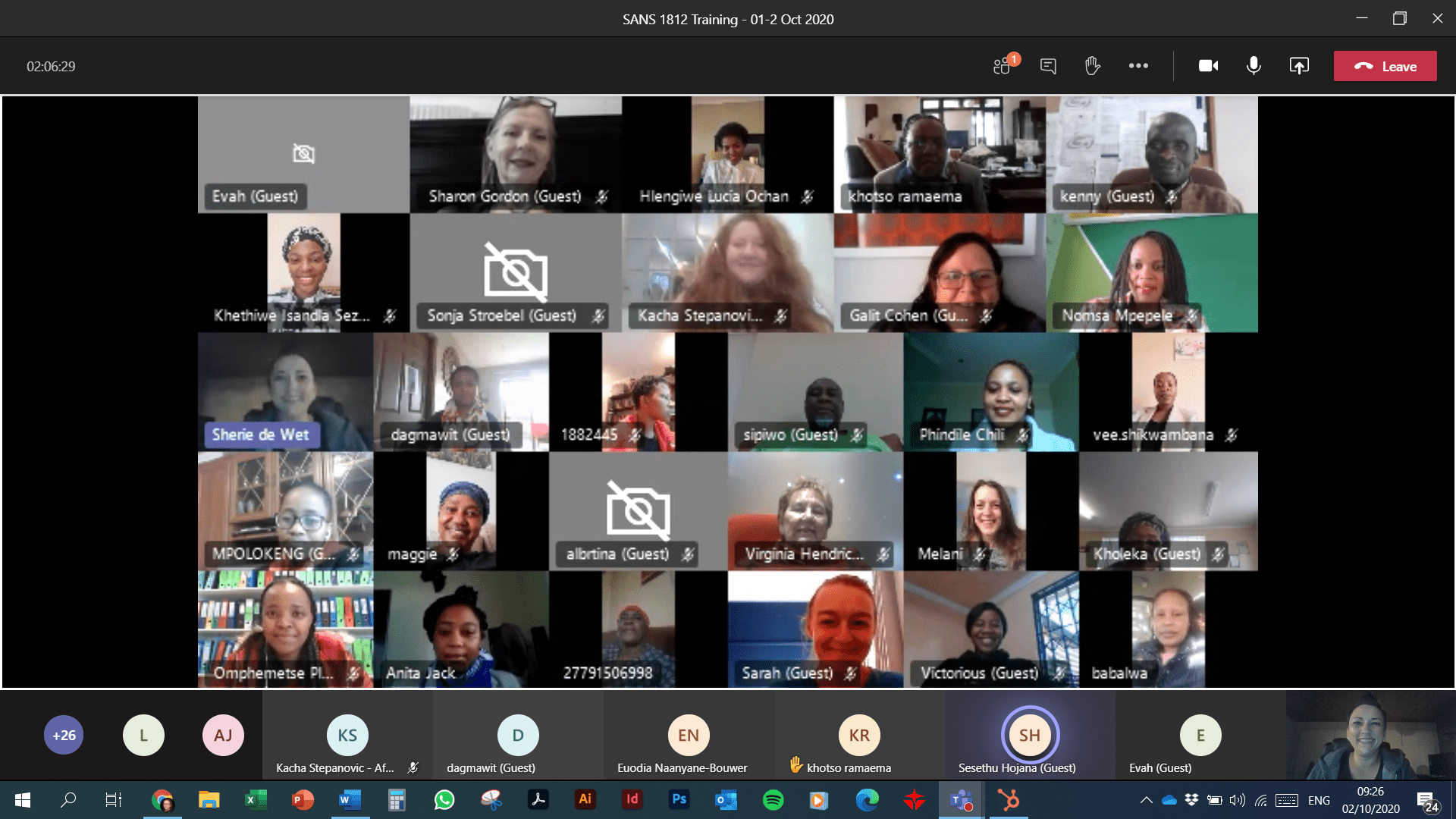The South African National Standards (SANS) 1812:2020 on washable, reusable sanitary towels was published on May 6 2020 by the South African Bureau of Standards (SABS). The standards respond to the impetus to advance quality sanitary menstrual product choices as committed to at the ICPD summit in November 2019 by the South African government. Currently, the government programme does not support other products aside from disposable sanitary towels because these products are not SABS approved or tested. In order for government to address period poverty within the limited available and dwindling resources, the National Treasury needs to promote a mix of products to ensure that every deserving menstruator is afforded an opportunity to manage their periods with dignity.
UNFPA advocates for product choice and on 1 -2 October 2020, UNFPA, in collaboration with partners, supported the training of local social enterprises on the South African National Standards (SANS) 1812:2020 on washable, reusable sanitary towels. The aim of the training was to strengthen the technical knowledge of the social enterprises on the SANS 1812:2020 and to strengthen the capacity of manufacturers regarding testing and certification of sanitary products to meet the requirements of product manufacturing in line with the Sanitary Dignity Implementation Framework (SDIF) prescripts. The training equipped local manufacturers with knowledge on the standard in order to inform evidence-based policymaking and to enhance social dialogue for the reusable standard. The training was conducted by the SABS and predominantly female owned social enterprises from across the country’s manufacturing washable and reusable sanitary towels landscape were in attendance.
Social enterprises were able to interact with the Department of Women, Youth and People with Disabilities (DWYPD) on the Sanitary Dignity Implementation Framework, which calls for a diverse range of safe, quality menstrual products. The training offered the washable and re-usable social enterprise manufacturers an opportunity to participate in producing washable and re-usable sanitary towels for SDP upon certification. Despite their willingness to participate in the programme the social enterprises highlighted some of the challenges the encounter as:
- Sourcing of affordable, quality fabric: Sourcing of local quality fabric is more expensive than previously importing fabric. However, the heavy import duty on imported fabrics have left most SMME’s struggling to find affordable quality fabrics to sew the washable, reusable sanitary towels.
- Fluctuating market: Owing to the economic challenges the increase in the rate of inflation has reduced the consumers spending power. In, turn this has affected the SMME’s turnover.
- Staff retention: The fluctuations in the economy have made it difficult to retain staff or offer staff job security. This has led to massive losses of skilled human resource.
- Access to distribute products in large retail shops and pharmacies: The many protocols required to distribute in large retail stalls including certification are expensive on small businesses. These requirements have deterred SMME’s from having the washable reusable sanitary towels retail shelves.
- Perceptions of the reusable, washable sanitary towels: A good proportion of the general public has a perception of the reusable, washable sanitary towels as mainly for the indigent women and girls. These perceptions have increased the need for more education, awareness, and aggressive marketing. In, turn SMME’s have encountered deficits to sufficiently fund the marketing, education awareness campaigns.
- High Costs of SABS certification: The SMME’s singled out the high costs of getting their products certified by SABS as a very capital-intensive venture. These costs are an impediment towards SMME’s getting their products certified.
There was a general agreement from the participants that creating awareness and educating girls in schools on the washable, reusable sanitary towels may increase the uptake of the product. Increased awareness would likely reduce the misperceptions of the washable reusable sanitary towels. It suggested that translating communication material and customizing it to local languages would likely increase community uptake of the washable re-usable products. Hence, they recommended that this should be considered when coming up with the marketing campaigns. The meeting ended on a highnote with participants expressing their gratitude to UNFPA for the support to the programme and pledged to join the South African Coalition on Menstrual Health Management to have a unified voice on Menstrual Health Management in the country.


